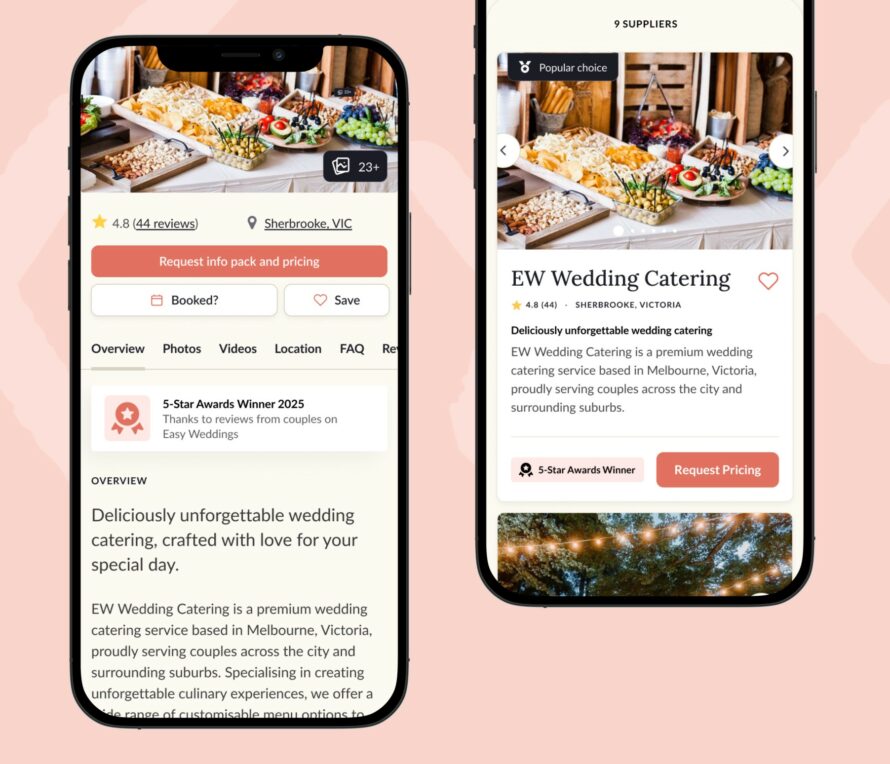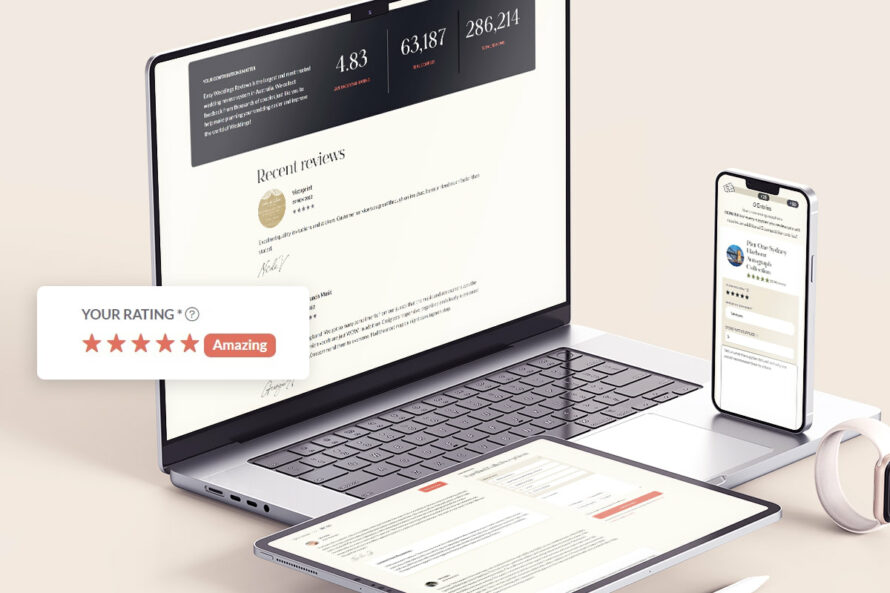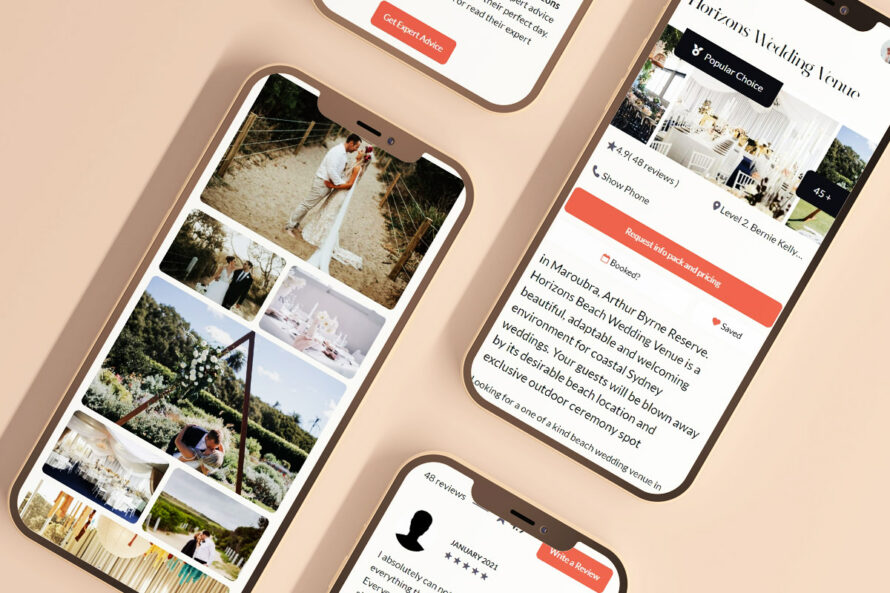If you’ve got a website, you can have a landing page. You don’t have to buy membership to an exclusive marketing club and you don’t need a massive budget. The once secret weapon reserved for digital marketing experts is now an accessible tool for small businesses to increase conversion and better target customers. We’ve consulted the Internet’s leading marketing authorities to bring you the lowdown on landing pages; what they are, why your wedding business needs them, when to use one and how to optimise a landing page for maximum results.
Conversion is key
It’s one thing to drive traffic to your website through in-bound marketing initiatives, but unless those visitors are eventually converted into paying customers, your marketing funnel is actually more like a leaky sieve. Replace your sieve with a landing page and you’ll be well on your way to capturing and converting visitors into paying transactions.
What is a landing page and why do I need one?
A landing page is a single standalone page (not accessible through your public website navigation) designed to speak with a particular target audience about a product or service – in most cases – that they have actively searched for.
For example, a bride-to-be might click your Google ad for naked cakes, which directs them to a landing page containing limited information about this particular type of cake, rather than your website home page, where visitors are left to navigate your entire site to find the promised content. This adds unnecessary time and frustration to an already fickle buying process, when landing pages can provide instant gratification through more specific details.
When can I use a landing page?
Businesses can send traffic to landing pages from their social media, Google Adwords, print collateral or newsletters. They can be used to promote a particular product, service or event with a very direct call-to-action that results in visitors booking the event/appointment, purchasing a product or service, and/or volunteering their contact details. There are two types of landing pages:
Click-through landing pages
Click-through landing pages are designed to direct visitor to secondary page. This could be to a booking system or online shopping cart. The idea is to warm the customer to your proposition first, before directly asking them to take action. If you have an e-commere website, this type of landing page may be useful in promoting an individual product. It avoids sending them straight to a shopping cart, which can be perceived as too pushy if they’re not ready to purchase.
By directing them to a preliminary web page about the product/service they’re seeking containing additional information, the customer will be closer to purchase point by the time they arrive at the financial transaction.
Lead generation landing pages
In a perfect world, every visitor who arrives on your landing page would make a purchase then and there, but when they’re not ready to hit that BUY NOW button, the goal is to capture their details and nurture this relationship until they trust you enough to part with their money.
To maintain the relationship, you need contact details to send them email marketing pertaining to the product/service promoted on the landing page – you know they’re interested in it, or they wouldn’t have ended up there. This makes them a ‘qualified lead’. So how do you get them to volunteer their email?
Lead magnets
To entice visitors to surrender their name and email, you need to offer something in exchange; a digital dangling carrot known as a lead magnet. A lead magnet offers baited value by granting exclusive access to promotion codes and discounted tickets, or through solving a problem, giving away free samples/trials, granting entry to competitions, or divulging industry secrets in the form of white papers, ebooks or infographics.
Where can I get a landing page?
Sites like LeadPages and unbound are great for creating your own landing pages for those with an eye for design and a knack for the back end of a website. If tech’s not your strong point, your web designer will be able to help you create one.
Details and design
One of lead pages’ most attractive qualities is simplicity. Who has time to read long-winded paragraphs of text in the age of instant gratification? Keep content succinct and punchy by using bullet points and short sentences. Navigation should also be simple and limited, images should be high-res and social sharing buttons should be added to encourage visitors to share the offer with friends.
Capture forms should ideally sit above the fold (the point at which you need to scroll to continue viewing the page) and only ask for essential information. It’s safe to assume if someone has internet, they’ve got a mobile phone, so don’t ask for unnecessary details like landlines or fax numbers if you don’t plan on using this information; the longer the form, the greater the resistance visitors will have to completing it.
Test for the best
As with everything in marketing, testing is required to assess effectiveness and tweak campaigns to ensure maximum conversion. The most common way of doing this with landing pages is called A/B testing. This method allows you to create two different landing pages for the same purpose to see which performs better. By changing variables like images, headers and calls to action, you can see which page variation captures more leads and create more of this page for future campaigns.
If you’ve got some ideas for landing pages that would work with your wedding business, get in touch with your Easy Weddings Consultant to discuss how our website and digital marketing team can help your business patch up the holes in your leaky sieve, to form a lean, mean, lead magnet capturing machine!



